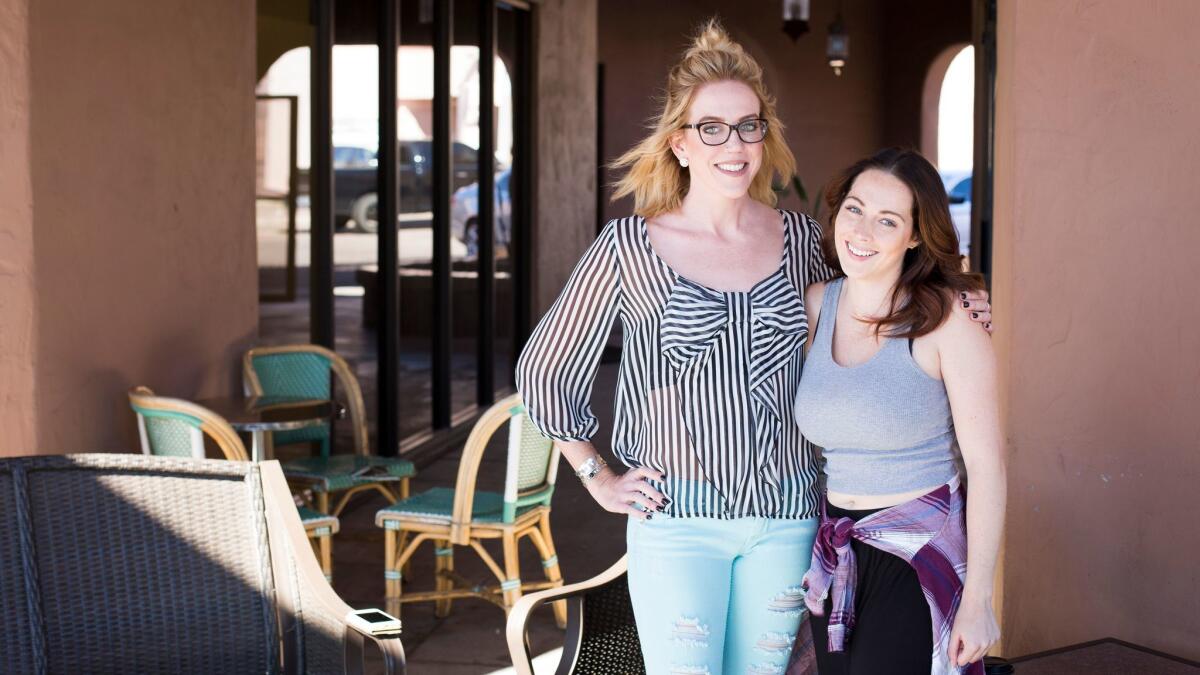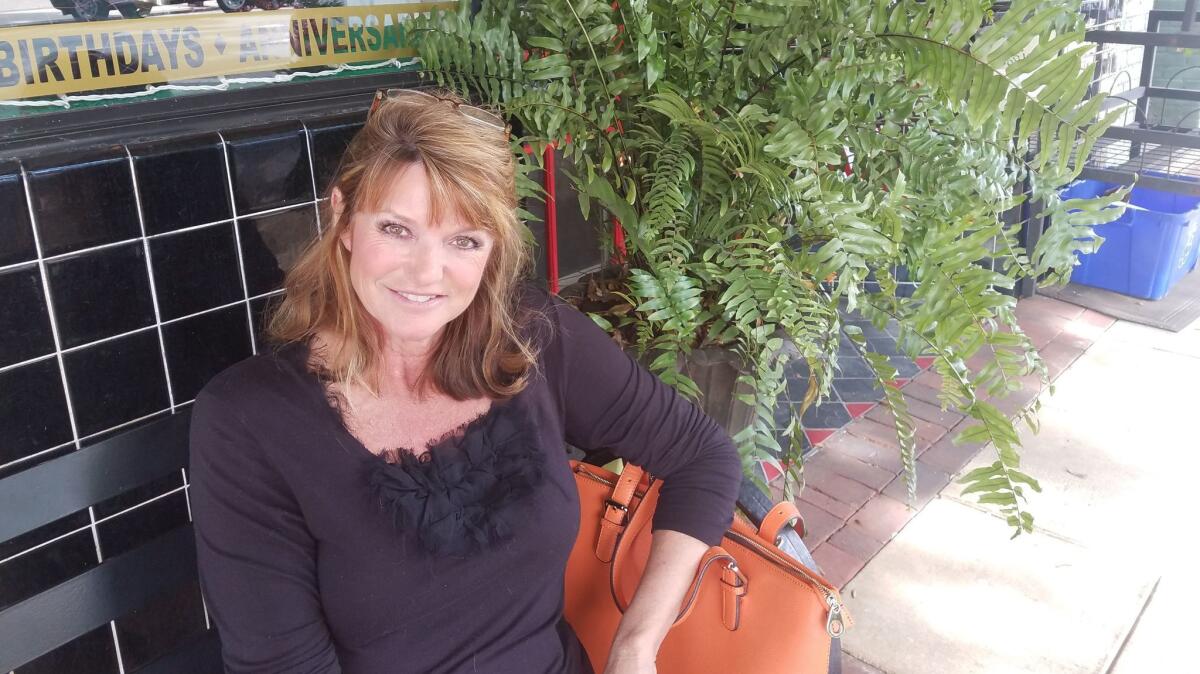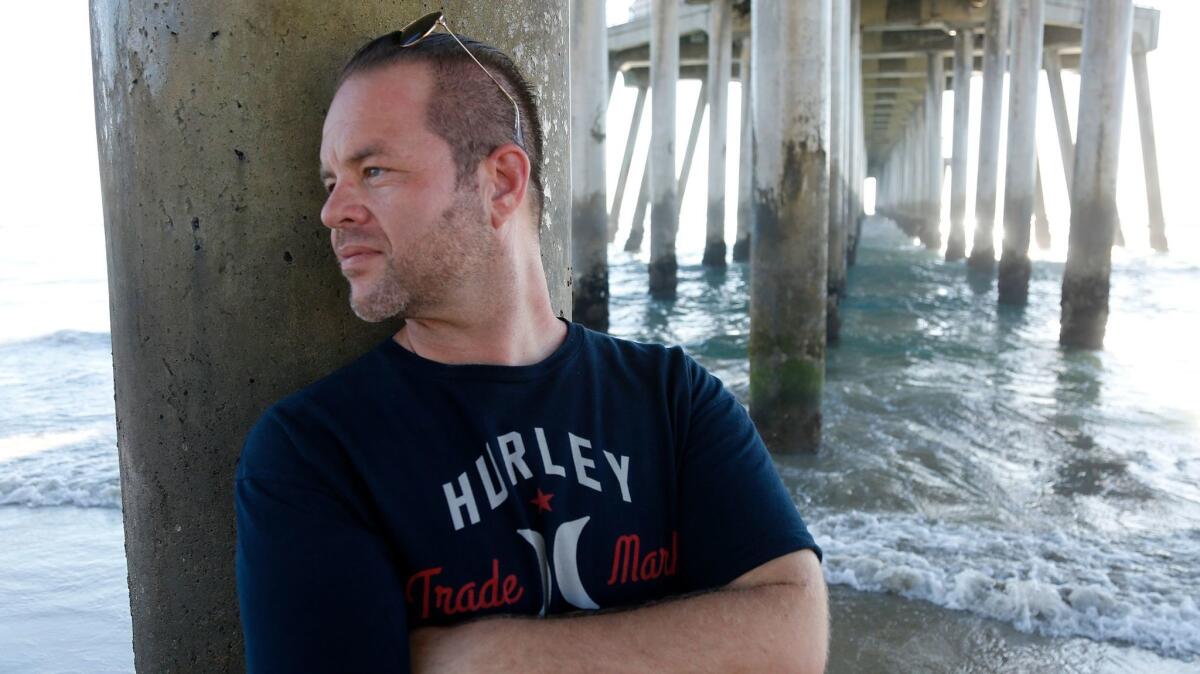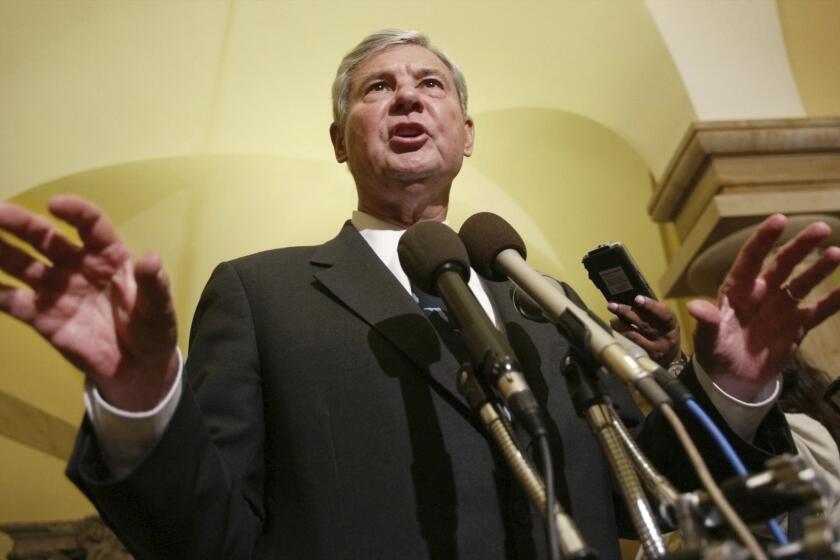‘We’re called redneck, ignorant, racist. That’s not true’: Trump supporters explain why they voted for him

When Audrey Kaatz and Ashley Wright finally decided whom to support for president, they kept the choice to themselves.
They admired his business sense and blunt-spoken style. But voting for Donald Trump was not something the two were comfortable discussing before the election. Not with their friends. Not with their boyfriends.
For the record:
6:11 p.m. April 17, 2024An earlier version of this article described Tucson as three hours from the Mexican border. It is one hour from the border crossing at Nogales.
Certainly not with their boss, a Democrat who supported Hillary Clinton.
“People were scared to say they were voting for him,” Kaatz, 27, said as she stepped away from the bang of a cash register and the thrum of hair dryers at the upscale salon in Scottsdale where the two women work.
Even now when people hear she supported Trump, said the 28-year-old Wright, “They think, ‘Oh, so you must be a racist,’ and that isn’t fair or true.”
Days after the Republican businessman and reality TV star pulled off one of the most astonishing political upsets in the country’s history, Americans are still trying to sort through the implications.
Trying to understand how it happened. Trying to understand each other. Trying to fathom the yawning gap between two Americas.
To his many critics, Trump is a racist, a bigot, a misogynist and a clown. The thought of him becoming the most powerful person on the planet is enough to produce stomach-churning anxiety, to bring sleepless nights and induce tears.
But more than six dozen conversations with Trump voters across the country — Democrats, Republicans, political independents — turned up a thoroughly different perspective.
They see an outsider unbeholden to a corrupt and rotten political system and brave enough to stake bold positions. They consider him fearless enough to defy the confines of political correctness. They view him as a vastly successful businessman, but possessing a common touch: a workingman’s billionaire.
His victory brought euphoria, relief.
Edith Gatewood, 72, felt like twirling across the floor of her home in a Denver senior complex. Norman Gardner, 67, who runs a mobile home park in Shelbyville, Tenn., wanted to go outside and holler at the moon.
Joyce Riley, 65, who sells real estate in Florida’s Panhandle, hadn’t realized how bad she felt about the direction of the country until she saw the prospect of things getting better. “This is the first time I’ve been optimistic about the country in many years,” she said. “I’ve been walking around singing, ‘Happy Days Are Here Again.’”
Sure, Trump said some vile things during an exceedingly nasty campaign, sometimes acting in ways they wouldn’t want their children to behave. But for those who supported him, that was part of what made him an unconventional candidate — he wasn’t the typical stamped-from-the-mold politician.
Trump was misunderstood and maligned by an arrogant and biased news media, his supporters say, and many of them feel misunderstood and maligned as well.
::
Contrary to perceptions, it wasn’t all angry white men, terrified of the country’s changing hue, who swept Trump into office.
Kaatz, the Arizona hairdresser, for instance, is dating a black man she expects to marry next April and looks forward to raising their mixed-race children. Wright lives in a multicultural community in the Phoenix suburbs and welcomes the Muslim and black children who scamper through her front yard.
“I don’t look outside and think my neighbors are going to bomb me,” Wright said — though she welcomed the notion of a wall along the border with Mexico, an hour drive from her parents’ home in Tucson.

“People were scared to say they were voting for him,” Audrey Kaatz, 27, said about President-elect Donald Trump as she stepped away from the bang of a cash register and the thrum of hair dryers at the upscale salon in Scottsdale, Ariz., where she wo
The notion of two Americas, one ascendant, the other convinced it is slipping ever further behind, has become a staple of the country’s politics and its national narrative as well.
Many Trump supporters belong to the latter America, an America of dislocation and loss: lost jobs, lost opportunities. A lost sense of belonging. A sense of no longer mattering.
In Shelbyville, a town of about 20,000 near the center of Tennessee, Gardner, the mobile home park operator, spoke of the businesses that have vanished: The company that built fireplaces. The factories that made pencils. The textile mills.
“Nothing’s come in to take their place,” he said. “We need to bring industry back and I think [Trump] can do it.”
Trump’s economic nationalism resonated with Emmett Lawson, an African American who fled Cleveland for Orlando, Fla., after losing his job in a steel mill. He blames the North American Free Trade Agreement, which President Clinton signed into law and Trump derides as the worst bargain in the history of creation.
Now, at age 58, Lawson drives a semi-truck hauling housing debris across Florida. “It was bad and Trump exploited it,” Lawson said of NAFTA. “He saw it and spoke about it. That spoke to me.”
Trump is “a business guy,” Lawson said. “That’s the change that’s needed.”

Anthony Miskulin wants a better-paying job. He wants a stronger economy. He wants, among other priorities, for President-elect Donald Trump to deal with illegal immigration, which Miskulin blames for soaring housing prices and a drain on public serv
In Huntington Beach, Anthony Miskulin, 37, used to make six figures as a loan officer, until the Great Recession hit. Now he toils in corporate sales, making $26,000 a year. He shares a house with four other people and commutes three hours by bus, having given up his car. He shoulders $57,000 in student-loan debt.
“I never anticipated being in this situation,” he said, soaking up the sun — one form of recreation he can still afford — on an 80-degree day on the Orange County coast. “My vote for Donald Trump, it wasn’t out of bigotry. It wasn’t out of hatred. It was about survival.”
Miskulin wants a better-paying job. He wants a stronger economy. He wants, among other priorities, for Trump to deal with illegal immigration, which Miskulin blames for soaring housing prices and sees as a drain on public services.
“I’ve been to the welfare office before, and a lot of people who go there don’t speak English,” Miskulin said. “Most of the people who go there, they’re not white. They’re not even black. The most people you see there are mostly Mexican.... They are illegal and they don’t belong in our country.”
Those racial undercurrents were an undeniable part of the Trump wave.
For some, making America great again means returning to a time when it was whiter, more male-dominated and more in line with what the religious right and its political allies consider traditional family values.
Margo Miko, 62, a former nurse now living on disability in Ohio, was among those drawn by Trump’s promises to build an impenetrable wall along the Southern border and to keep out Muslim immigrants.
She blamed her state’s governor, Republican John Kasich, for allowing an influx of refugees that has made her feel like a stranger in her Columbus neighborhood. She cited an encounter on a hot summer day.
She was out in shorts and a top when she ran into a woman in full Muslim garb. “She looked me up and down and said, ‘You really should cover yourself,’” Miko recounted. “I told her, ‘You need to take some clothes off. I bet you’re really hot.’ She was quite nasty.”
Tonya Register, a 57-year-old Trump supporter in Fountain Valley, said she has nothing against Mexicans — they were in Southern California long before she was, she noted — or the Asian immigrants filling up her Orange County neighborhood.
It was plainly wrong though, Register said, to see the White House lit up in rainbow colors to celebrate the Supreme Court’s legalization of same-sex marriage. “That was not cool to me,” said Register, whose disability check helps care for an adult daughter and two grandchildren living with her. “And I’m an American, too.”
To paint everyone who voted for Trump as a racist, or homophobe, or woman-hater, or to stuff every one of them into a basket labeled “deplorable,” to use Hillary Clinton’s infelicitous term, ignores and delegitimizes a deeply held sense of abandonment, these voters contend.
“Everyone who voted for Trump is being called names,” said Janet Flanigan, 54, as she stood outside a Thai restaurant and sushi bar in the courthouse square in Newnan, Ga., a former cotton town about 40 miles southwest of Atlanta. “We’re called redneck, ignorant, racist, haters.”
The freelance writer went on, waving her hands in frustration. “That’s not true,” she said. “People voted for Trump because they felt they have not had representation in Washington for a long time.”

::
Change, of course, entails risk, and many readily concede there is considerable risk in handing the country over to a man who has never served in the military or spent a moment in government — something the country has never done in its entire history.
But there’s always risk, they said, and with four years of Hillary Clinton they figured it was pretty clear what the country could expect: more economic inequality, more bloated government, more taxes, a continued loss of respect around the world.
“She has a proven track record,” said Nancy Lewis, 58, who works for a medical answering service in Mendenhall, Miss., “and it wasn’t a very good one.”
Many liked what they saw early Wednesday morning, when Trump, apparently as surprised as most others, laid claim to the White House. He seemed more serious, they said, more responsible and sober, and they expect that to continue as the weight of the office settles on his shoulders.
“His mouth gets him in trouble,” said Wayne Lee, 64, a truck driver from Palmetto, Ga., who acknowledged it was somewhat nervous-making to think of Trump with his finger on the nuclear trigger. “But I think his behavior is going to change. All these outbursts — they’re not going to happen anymore. I think he’s going to take it seriously.”
That, of course, won’t be known for some time.
It is clear what Trump supporters expect, in keeping with the grand though often contradictory promises he made during the campaign.
A stronger economy that will produce more jobs with better pay. Lower taxes. Less bureaucracy. Cheaper and more widely available healthcare.
A reversal of the decades-long decline in the country’s manufacturing industry, and a revival of the struggling coal and steel industries. Better and safer airports, roads and bridges.
A muscular foreign policy that will deter aggression and make the country stand taller in the eyes of both friend and foe. A fail-safe policy that will keep people from entering the country illegally and, especially, keep terrorists offshore.

“I finally feel optimistic,” said Miskulin, who earlier had watched the Veterans Day celebration in Huntington Beach. “I think Donald Trump is not only going to be great for the country but also great for the American people, not a small minority of bureaucrats and labor union members.”
To hear them tell it, Trump supporters want a government that no longer works to make the rich even richer, offers handouts to the undeserving and caters to the whims of Washington’s army of lobbyists and special interests.
Perhaps more than anything, they want a president who pays attention to the half of the country bereft of hope: That, they said, would truly make America great again.
Barabak reported from Las Vegas and Duara from Scottsdale, Ariz. Times staff writers Kurtis Lee and Matt Pearce in Los Angeles, Melanie Mason in Sacramento, Seema Mehta in Huntington Beach, Michael Finnegan in New York, David Montero in Provo, Utah, and correspondent Jenny Jarvie in Newnan, Ga., contributed to this report.
Twitter: @markzbarabak
Twitter: @nigelduara
ALSO
The incendiaries vs. the diplomats: Who in Trump’s orbit will get the top White House jobs?
Trump hammered the Federal Reserve as a candidate. As president, he could quickly reshape it
Why did Trump win? Because Democrats stayed home
More to Read
Get the L.A. Times Politics newsletter
Deeply reported insights into legislation, politics and policy from Sacramento, Washington and beyond. In your inbox three times per week.
You may occasionally receive promotional content from the Los Angeles Times.








